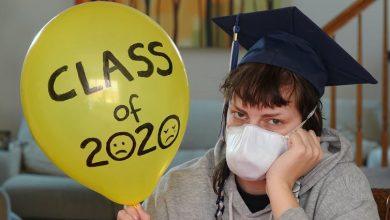
It’s been two years since Prime Minister Turnbull announced his innovation agenda for schools and the allocation of funds to boost science, technology, engineering and maths (STEM) education. But there’s a growing gap between what was promised and the reality of what all schools can access.
STEM education in Australia won’t realise its full potential unless we address issues of resources, equity, teacher professional learning, the needs of students who speak English as an additional language and may have low literacy and numeracy skills, and ageing school facilities.
Read more: Want to solve our STEM skills problem? Bring in the professionals
Building teacher confidence and capacity
Two recent Australian studies involving nearly 1,000 primary school students sought to determine whether a new teaching model would build teacher confidence and capacity in STEM. Data was collected from surveys, teaching plans, observations in classrooms, interviews with teachers and principals and focus groups with students.
The studies found the ten week units of inquiry-based learning using the new model are effective. Teachers, regardless of how much science or maths they’ve studied, are prepared to step up and tackle teaching more difficult concepts like computational thinking, laws of motion and light conduction. For example, one early career teacher said:
I feel like I am in my element. Teaching simple coding has been really great. Primary school teachers have the ability to teach really relevant concepts for the future and be excited by it. Students pick up on your excitement.
Having children do experiments, finding problems, using authentic equipment, like a digital heat thermometer or circuit boards, and hands-on learning were priorities in most classrooms. This includes co-teaching large groups of students with a team of colleagues.
One mid-stage career teacher said:
Having students work in a small teams with their peers is powerful, they are in the tasks and want to find detailed solutions to scientific problems.
Project-based learning and experiences where students designed and tested prototypes (like the hydraulic pump) were common and teachers reported significant growth in their confidence and capacity across both studies. Only time will tell whether momentum is sustained after the studies conclude.
Five emerging concerns in STEM education
The studies succeeded in building teacher capacity and confidence, but also brought to light five concerns about STEM that current education policies and programs do not adequately address.
Resources
Hands on materials for STEM often cost money. For example, the simple circuits, boards and connecting wires needed in the electricity topic. Most classes in the research shared materials, and this could mean building a circuit then pulling it apart for the next class to reuse the same equipment. This might be a good scientific exercise, but it wastes time and causes frustration. One student said:
We do a lot of building, unbuilding and rebuilding because we don’t have enough wires to go around. It’s annoying to have to start all over again each lesson.
Read more: Technology in the classroom can improve primary mathematics
Equity
There is a rising STEM equity gap. Most of the schools had very old hardware – so the “T” in STEM was left hanging. Technology was not well connected and software needed urgent upgrading. I have conducted research across school sectors in different states, both rural and urban, and the gaps between who has and who has not in STEM are stark. This brings into focus the necessity to fast forward the Gonski 2.0 recommendations for needs-based funding.
Teacher professional development
Teacher learning in STEM education must continue to be supported with targeted funds for teachers to plan units of work together for their continuous professional development is necessary. The default of hiring outside organisations to teach coding and conduct experiments often means teachers stand back while others work with their students. This does little to build personal professional capacity and confidence.
Literacy and numeracy levels
Students need proficiency in literacy and numeracy for effective STEM learning in primary school education. Low literacy and numeracy levels of students who spoke English as an additional language in Year 6 at some schools made STEM hard. An experienced teacher said:
We only have 10 students who can read the content of lessons without help. So 45 students can’t successfully make meaning from instructions or video footage they are given. How do these students access the language they need for STEM?
Ageing classrooms
Ageing physical spaces with small classrooms were common in most primary schools. These schools had meagre classrooms with lots of students, cramped spaces and no storage space for large STEM constructions.
Current hive of STEM activity
The good news is there’s plenty of excellent STEM activity in Australian schools right now. Some examples are early childhood discovery programs, coding clubs, CSIRO resources, online courses to support application of the digital technologies curriculum, classroom re-design and museums that offer interactive STEM experiences for teachers and students.
The Early Learning STEM Australia pilot is one measure planned for pre-schools in disadvantaged communities in 2018. Increased attention to the five big issues with STEM will support the pilot’s impact for teachers and students in more vulnerable primary schools. Access and equity must be made priorities.
![]() This article was written by Senior Lecturer, School of Education; Associate Member, STEM Education Futures, University of Technology Sydney. The piece first appeared on The Conversation.
This article was written by Senior Lecturer, School of Education; Associate Member, STEM Education Futures, University of Technology Sydney. The piece first appeared on The Conversation.







